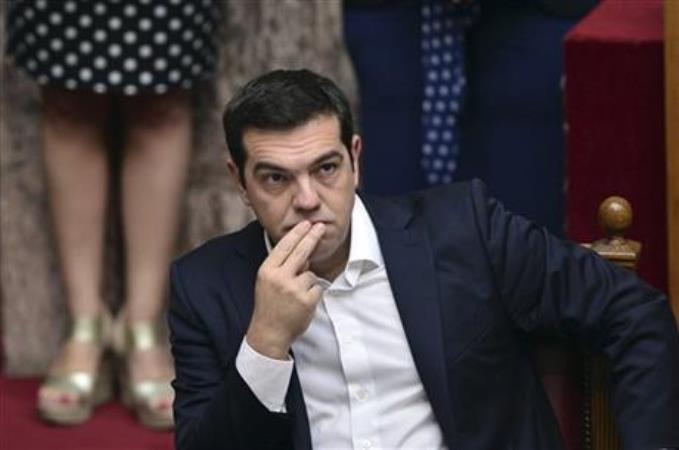
Greece's European creditors voiced hope Monday that the country's newly elected government will deliver on promises to overhaul its economy, which would pave the way to the release of billions of bailout cash and potential help on debt repayments.
As the eurozone's 19 finance ministers were meeting in Luxembourg to discuss the country's outlook, Greece's left-led government was set to submit its draft 2016 government budget to parliament.
The budget is set to reveal a series of reforms required under the country's new three-year, 86 billion-euro ($96 billion) international bailout. Without delivering its side of the bailout bargain agreed in July, Greece would not be able to tap the bailout funds and once again face the prospect of a looming bankruptcy and exit from the euro.
"A lot of work has to be done," said Jeroen Dijsselbloem, the eurozone's top official. "It's in the Greek interest to deliver as quickly as possible so we can continue with the process of bank recapitalization and go into the debate about debt restructuring and debt relief."
Greece has relied on bailout funds from its eurozone partners as well as the International Monetary Fund since the spring of 2010, when the country was locked out of international bond markets amid concerns over the size of its debts. Despite years of spending cuts and tax increases that were required in return for the bailouts, the country is still not in a position to meet its debt commitments on its own.
In return for the third bailout, which was negotiated after months of tortuous negotiations that saw Greece's banks shuttered for weeks and strict controls on money flows imposed, the Greek government has to deliver on a series of measures, such as sales taxes increases, labor market reforms and privatizations.
Pierre Moscovici, the European Commission's top economy official, said he's encouraged by the recent pronouncements of re-elected Greek Prime Minister Alexis Tsipras that his government will deliver on its promises.
"I am confident there is a common will to avoid a new drama, a new tragedy with Greece, but at the same time we must also be vigilant," Moscovici said arriving for the meeting in Luxembourg. "There is a positive dynamic in relations between the eurozone and Greece."
He said that the key word for Greece is "implementation."
The Greek government is hoping that meeting its obligations will pave the way to some debt relief in the form of longer repayment periods and lower interest rates on its bailout loans. The eurozone has said it will look at Greece's debt after the country clears the first review due under the terms of bailout agreement. Initially that was expected in October.
Because of Greece's general election last month that saw Tsipras' left-wing Syriza retain power in coalition with the Independent Greeks, there are some concerns in the markets that Greece is behind schedule and that the first payments due from the bailout may be delayed.
However, finance ministers did not appear to be in a critical mood as they arrived for Monday's meeting.
"There are one or two points which are delayed by the elections," said Austrian Finance Minister Hans Joerg Schelling. "I believe Greece at the moment is on track, as far as the implementation goes."
Tsipras is due to announce his government's policies during a parliament speech Monday evening.
The new budget is expected to include the abolition of certain tax breaks as well as increases in taxation and a tightening of laws on tax avoidance and evasion.
